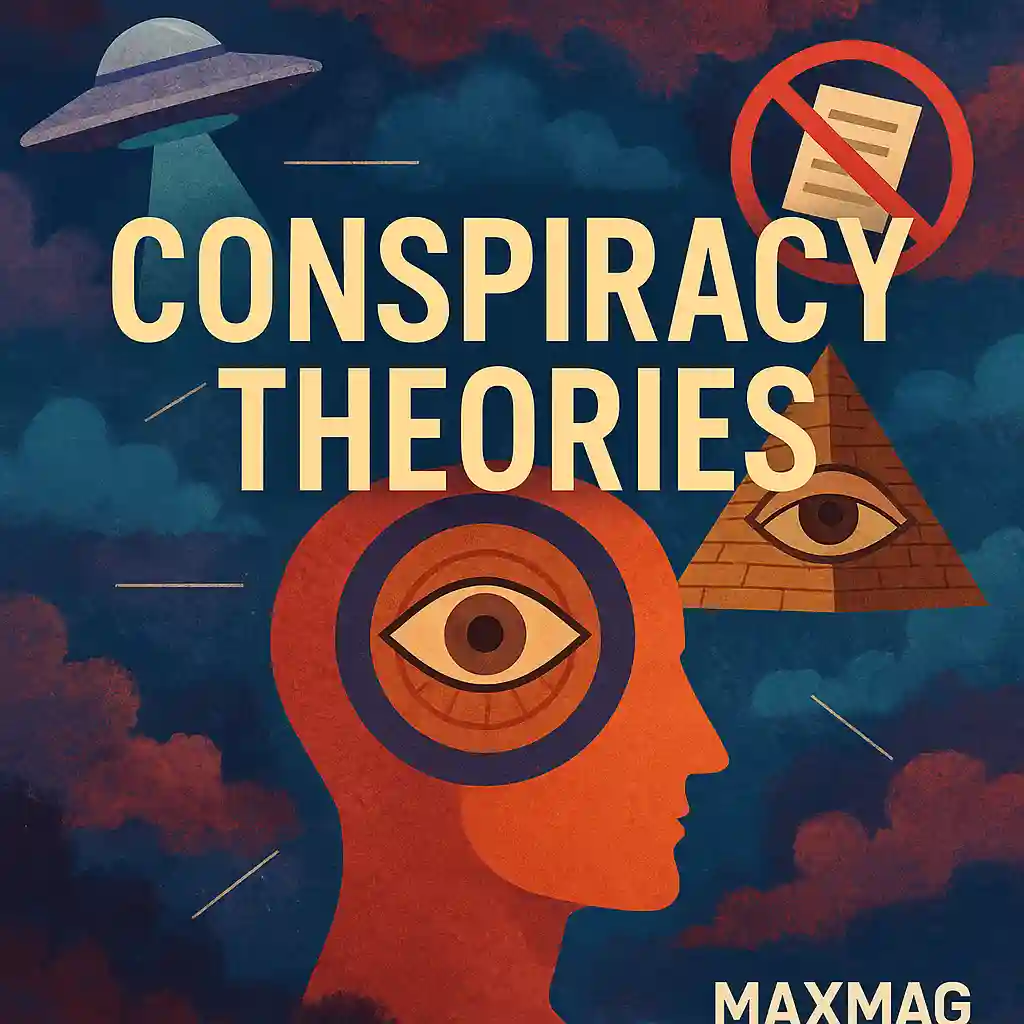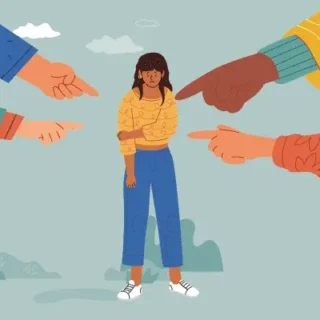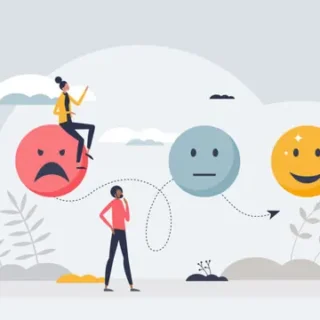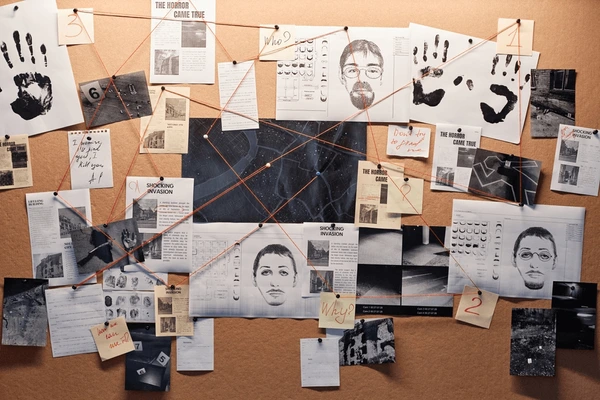
Conspiracy theories are more than just curious ideas whispered in the corners of the internet. They’re psychological shields—ways people try to make sense of a confusing world. From flat earth beliefs to claims about shadow governments, conspiracy theories continue to thrive. But why are so many drawn to them? In this article, we explore key conspiracy theory psychology insights, examining the emotional, cognitive, and social forces behind these beliefs and how to move beyond them.
The Psychological Appeal of Conspiracy Theories
Conspiracy theories offer answers when reality feels uncertain. They give people a story—one that explains why bad things happen and who is supposedly responsible. These stories aren’t just random. They fulfill emotional needs like safety, control, and identity. When official explanations feel unsatisfying or hard to understand, conspiracy theories feel easier to grasp—even comforting.
But the comfort is short-lived. Believing that everything is controlled by hidden powers can create more fear, mistrust, and isolation in the long run.
Cognitive Shortcuts: How Our Minds Can Trick Us
One of the core conspiracy theory psychology insights is how our brains look for patterns, even where none exist. Humans naturally try to connect the dots. It’s how we survive—by finding meaning in chaos. But sometimes, our minds see patterns that aren’t real.
Proportionality Bias
We often believe that big events must have big causes. A global pandemic, for example, doesn’t feel like it should just “happen.” So we search for bigger answers—secret labs, elite agendas, or hidden plots. In truth, events can have simple explanations, even if they’re tragic.
Confirmation Bias
We tend to focus on information that supports what we already believe. If someone thinks the government is hiding something, they’ll mostly seek out sources and people who say the same. Over time, this builds a self-reinforcing worldview.
Pattern Recognition Gone Too Far
Seeing patterns helps us survive—but it can also mislead us. A person might connect unrelated news stories and believe there’s a secret plan behind them. Once that belief forms, it becomes hard to let go, even if the logic doesn’t hold.
Emotional Factors Driving Conspiracy Thinking
Conspiracy beliefs often take root during times of stress. Economic problems, political division, pandemics—these events shake our sense of control. For many, conspiracy theories act like emotional first aid. They turn confusion into clarity, even if the clarity is false.
Anxiety and Uncertainty
When people feel anxious, they’re more likely to seek out explanations. The more uncertain someone feels about their future, the more tempting it is to believe in a “hidden truth” that explains everything.
Loneliness and Isolation
Conspiracies can create a sense of community. People who feel left out or misunderstood may find comfort among others who “see through the lies.” This bond is powerful—it replaces isolation with identity.
Distrust in Authority
If someone has had negative experiences with institutions—whether schools, governments, or medical systems—they may develop deep mistrust. This makes conspiracy theories more believable because they match existing feelings of betrayal or injustice.
Social Media’s Role in Spreading Belief
Another key conspiracy theory psychology insight is how belief spreads—not just from person to person, but through online algorithms. Platforms like YouTube, TikTok, and Facebook often suggest similar content once a user engages with one conspiratorial video or post.
Echo Chambers
In digital echo chambers, people hear the same ideas repeated over and over. This repetition creates the illusion of truth. If a claim shows up in every comment thread, video, or forum, it feels validated—even when it’s false.
Virality Over Accuracy
Social media prioritizes clicks, likes, and shares—not facts. Emotional or sensational content spreads faster than cautious explanations. A wild conspiracy theory might get thousands of shares, while a careful fact-check post barely gets noticed.
Influencers and Misinformation
Some public figures knowingly or unknowingly promote conspiracy theories. When people admire or trust these figures, they’re more likely to adopt the same beliefs, no matter how questionable the information may be.
Personality Traits Linked to Conspiracy Beliefs
Research suggests that certain personality traits can make someone more likely to adopt conspiratorial thinking. That doesn’t mean only “certain types” believe in conspiracies—but some traits may increase the risk.
High Suspiciousness
People who naturally question others’ motives may be more vulnerable to conspiracy thinking. This trait, while sometimes useful, can lead to an automatic rejection of official explanations.
Need for Uniqueness
Some people enjoy feeling like they know something others don’t. Conspiracy theories feed this need by offering “secret knowledge” that makes someone feel special or smarter than the crowd.
Cynicism and Distrust
When someone believes most people are dishonest or corrupt, it’s easier to believe that global events are orchestrated by evil forces. This outlook makes conspiracy narratives feel plausible.
The Danger of Persistent Conspiratorial Thinking
Believing in one conspiracy theory isn’t always harmful. But when these beliefs grow or take over someone’s worldview, they can lead to serious consequences:
-
Health risks – refusing vaccines, treatments, or safety measures
-
Family strain – arguments, broken relationships over beliefs
-
Radicalization – involvement in extremist groups or violent acts
-
Isolation – cutting off friends, losing jobs, or falling into deep distrust
Over time, these beliefs can become a core part of someone’s identity, making them harder to challenge or change.
How to Respond Without Making Things Worse
Talking to someone who believes in conspiracy theories isn’t easy. It’s tempting to argue, mock, or “correct” them. But one of the most important conspiracy theory psychology insights is that confrontation rarely works. In fact, it often makes people dig in deeper.
Approach with Empathy
Start with understanding, not judgment. Ask what they’re feeling—not just what they believe. Often, fear, sadness, or loneliness lies beneath the surface.
Ask Questions, Don’t Lecture
Instead of saying, “You’re wrong,” try, “What made you start thinking this way?” Questions encourage reflection. Lectures usually trigger defensiveness.
Build Trust Over Time
Don’t expect instant change. Beliefs built over years won’t crumble in one conversation. Focus on keeping the relationship healthy so you can stay in dialogue.
Share, Don’t Shame
Offer alternative information gently. Share your own doubts or journey. This can feel less threatening than a direct challenge.
Prevention: Building Resistance to Conspiracy Thinking
Stopping the spread of conspiracy beliefs means strengthening critical thinking and emotional resilience—especially in young people.
Teach Media Literacy
Help people understand how to evaluate sources, check facts, and recognize manipulative content. Schools and families play a major role here.
Encourage Open Discussion
Create spaces where people can ask questions without fear. Curiosity is healthy—silencing it just pushes people toward alternative answers.
Strengthen Community
People with strong, supportive relationships are less likely to fall into conspiracy thinking. Belonging, connection, and purpose act as buffers against isolation.
Promote Scientific Thinking
Teach how to weigh evidence, interpret data, and think in probabilities. This helps people navigate a world where not everything has a simple answer.
When to Seek Professional Help
In some cases, conspiracy beliefs interfere with a person’s well-being or relationships. If someone becomes obsessive, paranoid, or socially withdrawn, therapy may help.
Therapists can gently explore the emotions behind the beliefs. Techniques like cognitive-behavioral therapy (CBT) can teach people to question their assumptions and find more balanced ways to interpret events.
Online platforms like Psychology Today or local mental health services can help you find support.
Final Thoughts: Understanding Before Judgment
It’s easy to dismiss conspiracy theories as nonsense. But doing so ignores the real reasons why people believe. Conspiracy theory psychology insights show us that these beliefs don’t emerge from stupidity—but from fear, confusion, and unmet emotional needs.
By offering empathy, encouraging critical thinking, and fostering trust, we can begin to replace false stories with true connection. In doing so, we not only help individuals—we help society move closer to truth, trust, and shared reality.
FAQ About Conspiracy Theory Psychology Insights
Q1: Why do people believe conspiracy theories?
Q2: Are conspiracy believers unintelligent?
Q3: Can conspiracy beliefs be harmful?
Q4: How can I talk to someone who believes in conspiracies?
Q5: Is there therapy for conspiracy believers?
Q6: How do we prevent conspiracy thinking?










